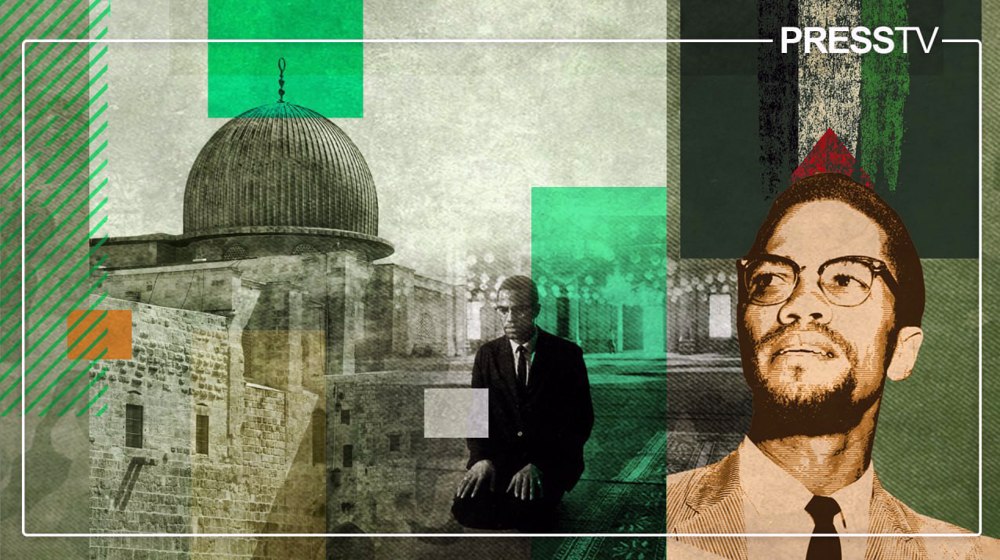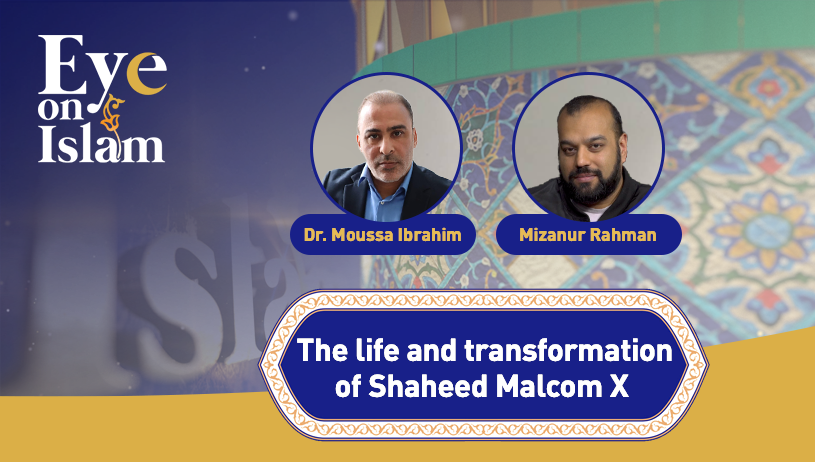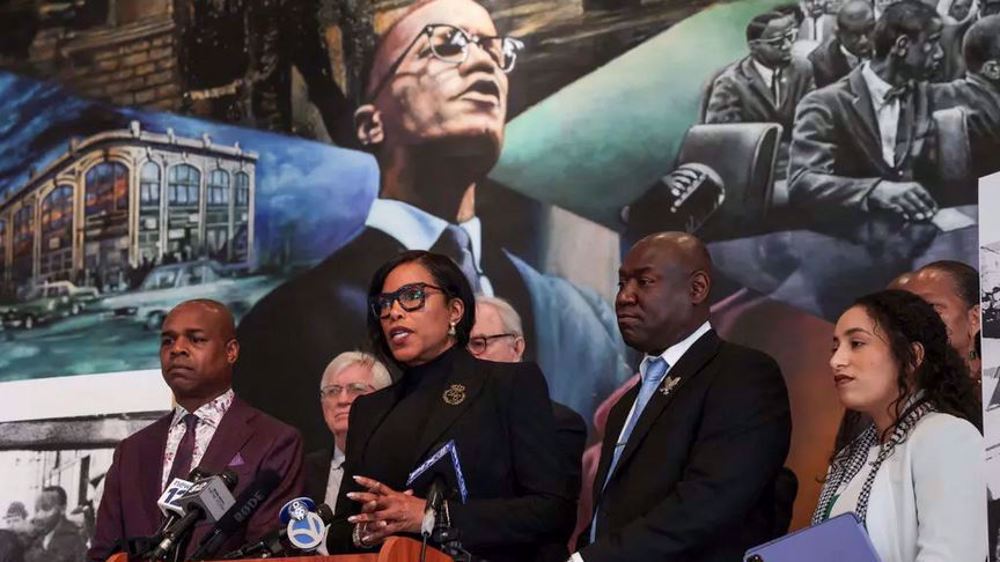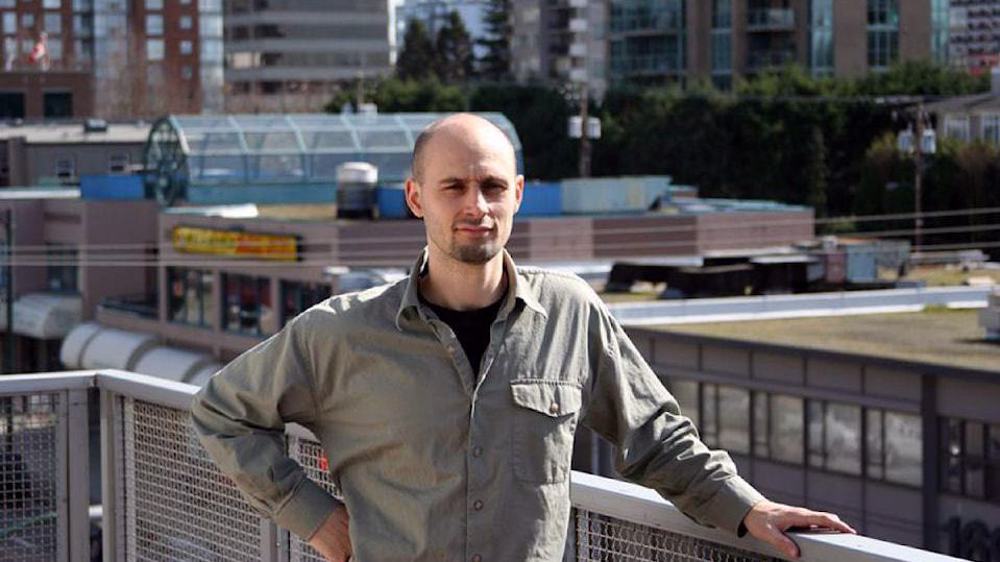Malcolm X, civil rights icon who challenged Zionism and advocated for Palestine
By Humaira Ahad
On a chilly February afternoon, as the sun retreats behind dense clouds and the breeze whispers through rustling leaves, Hamid weaves his way through the bustling book market near the University of Tehran.
Amidst the hustle and bustle, the master’s student in 'world studies' rushes toward a bookstore. Suddenly, he comes across a shelf dedicated to Malcolm X, a legendary figure of civil rights movement in the US.
A spark of excitement ignites in his gaze. “There it is!” he exclaims, his voice brimming with eagerness, as he moves to grab a copy of the book he had been searching for.
Malcom X (alias El-Hajj Malik El-Shabazz) was a prominent Muslim civil rights activist who fought for the rights of the African-American community in the US in the mid-20th century.
He was born on May 19, 1925, in Omaha, Nebraska, and became one of the most powerful and influential voices of the civil rights movement in his country. He fearlessly challenged injustice, inspiring millions.
His fight for justice earned him fame and admiration globally, but it also made him enemies. On February 21, 1965, at the age of 39, Malcolm was assassinated while delivering a speech at the Organization of Afro-American Unity at Columbia University in New York City.
As a prominent leader, he believed that the oppressed were entitled to resist by any means necessary. He condemned the system that cloaked oppression as order while branding resistance as violence.
Beyond his local activism in the US, Malcolm was a fierce critic of the dispossession and oppression of Palestinians by the Zionist regime. He saw their struggle as a fight for human dignity and worked tirelessly to raise awareness, particularly within the Black American community, forging connections between liberation movements globally.
During the months preceding his death, Malcolm X turned very vocal in expressing his concern about the plight of Palestinians.
In a famous 1964 speech in the Egyptian capital Cairo, he said the problem that exists in the occupied Palestine is not that of religion but colonialism.
"It is a question of a people who are being deprived of their homeland," he stated.
"I, for one, would like to impress, especially upon those who call themselves leaders, the importance in realizing the direct connection between the struggle of the Afro-American in this country and the struggle of our people all over the world."
Malcolm’s visit to Gaza
Malcolm traveled to Gaza in 1964. The coastal strip was then controlled by Egypt. During his two-day stay there, the American civil rights leader visited the Khan Younis refugee camp and a nearby hospital.
Interaction with people, as well as witnessing firsthand the displacement and suffering caused by the 1948 Nakba to Palestinians, fostered a profound empathy in him.
At the end of his whirlwind trip to Palestine, Malcolm wrote in his diary that the “spirit of Allah was strong” in Gaza.
His observation was right, as the strong faith and conviction of Palestinians have been demonstrated in action since the events of October 7, 2023, amid the genocidal war on Gaza that has killed nearly 50,000 people.
Malcolm’s meeting with renowned Palestinian poet Harun Hashim Rashid was the highlight of his trip. He was moved by Rashid’s horrific experience, as the poet recounted the Suez Crisis, in which hundreds of Palestinians were murdered by the Israeli regime’s military.
Later, Malcolm wrote about the encounter, admiring Rashid’s work. Touched by the Palestinian poet’s words, Malcolm penned a poem titled “We Must Return.”
We must return
No boundaries should exist
No obstacles can stop us
Cry out refugees: “We shall return”
Tell the Mts: “We shall return”
Tell the alley: “We shall return”
We are going back to our youth
Palestine calls us to arm ourselves
And we are armed and are going to fight
We must return
Malcolm on Zionism
Witnessing the plight of Palestinians during his visit to Gaza, Malcolm expressed his open and categorical disdain for Zionism.
His writing “Zionist Logic”, published in The Egyptian Gazette on September 17, 1964, conveyed his belief that Zionism was not a threat only to Palestine but to the world.
He was convinced that colonialism had donned new garbs in the form of Zionism and was employing new methods to rule over the masses. He considered these new strategies more dangerous than the ones used by former imperialist powers.
“The Israeli Zionists are convinced they have successfully camouflaged their new kind of colonialism," he wrote.
Laying bare the nefarious designs of Zionism, the Afro-American leader said the modern 20th-century weapon of neo-imperialism is ‘dollarism,’ and Zionists have mastered the science of dollarism: "the ability to come posing as a friend and benefactor, bearing gifts and all other forms of economic aid and offers of technical assistance."
"Thus, the power and influence of Zionist Israel in many of the newly “independent” African nations has fast become even more unshakeable than that of the 18th-century European colonialists… and this new kind of Zionist colonialism differs only in form and method, but never in motive or objective.”
Rudolph Ware, a West African historian and an expert on Malcolm X, says Malcolm explicitly in his notes tethered the Zionist project to white supremacy directly.
"He said this is a European Jewish population empowered by a European imperial authority to dispose Arab, brown Arab from their indigenous lands," he writes.
Zionism and European colonialism
According to Malcolm, Zionism was an iteration of European colonialism and came into existence to exploit the Global South.
Foreseeing the threat of the Zionist racist movement, the Black American leader wanted the countries of the Global South to unite against this new form of imperialism that had devised new methods to exploit the masses.
“Those who benefit most are the former colonial masters who have now supplanted the hated colonialism and imperialism with Zionism," he noted.
"Zionists have outstripped all other interest groups in the present struggle for our mother continent. They use such a benevolent, philanthropic approach that it is quite difficult for their victims to see through their schemes.”
Malcolm also accused the West of strategically attempting to divide Africans and Asians through the creation of Israel.
"The ever-scheming European imperialists wisely placed Israel where she could geographically divide the Arab world, infiltrate and sow the seed of dissension among African leaders and also divide the Africans against the Asians," he stated.
On the occupation of Palestine by the Zionist apartheid regime, Malcolm drew a comparison between Spain and the Israeli claim of the so-called “Promised Land.”
"Only a thousand years ago, the Moors lived in Spain. Would this give the Moors of today the legal and moral right to invade the Iberian Peninsula, drive out its Spanish citizens, and then set up a new Moroccan nation... where Spain used to be, as the European Zionists have done to our Arab brothers and sisters in Palestine?"
The noted human rights defender asserted that the occupying regime’s argument to justify its "occupation of Arab Palestine has no intelligent or legal basis in history."
Malcolm X on resistance
Addressing a crowd in the US state of Michigan in 1965, Malcolm said, "We need a free Palestine... We don't need a divided Palestine. We need a whole Palestine."
He believed that nonviolent resistance was futile in the face of violence. “It is criminal to teach a man not to defend himself when he is the constant victim of brutal attacks.”
Malcolm believed that freedom is never safeguarded peacefully. He said, “Anyone who is depriving you of freedom isn’t deserving of a peaceful approach by the one who is being deprived of their freedom.”
Responding to a question on Malcolm’s possible reaction to the events of October 7, 2023, Prof. Ware said with a sarcastic smile.
“We all know how Malcolm would have answered the question, do you condemn Hamas? I recall a beautiful interview where Malcolm was being asked about ‘Mau Mau uprising’ in Kenya, I mean he says we never equate violence that is used to resist an oppression with a violence that is used to impose it in the first place.”
Meanwhile, Hamid, after rummaging through the bookshelves for a couple of hours, finally found the books he had been waiting to buy for several months: The End of White World Supremacy (Malcolm’s four speeches) and Women in the Media in Capitalism and Socialism.
VIDEO | Iran’s Eurasia Expo 2025 showcases free trade zone opportunities
VIDEO | Nigeria legislature investigates USAID for suspicions of sponsoring terrorism
VIDEO | Yemen's mysterious water well said to help cure illnesses
VIDEO | Iranian women in Sydney challenge Western narratives
Iran urges speeding up of legal processing of Israel’s genocide, war crime cases
VIDEO | Large protests held as Germany goes to polls
VIDEO | With Adnan Mansour on Lebanon, its future
VIDEO | 'Captives only released under Resistance terms'













 This makes it easy to access the Press TV website
This makes it easy to access the Press TV website